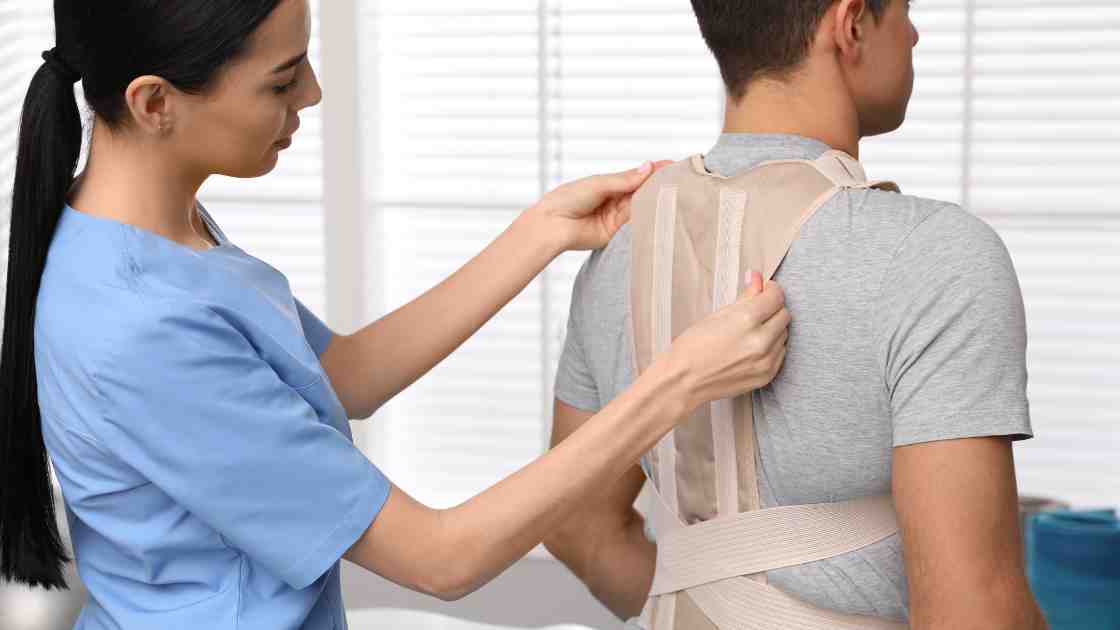Here's the ultimate guide to posture correctors and posture correction in India.
As a posture correction and physiotherapy clinic, we get to see the most interesting and weirdest things. One such thing is a kind of device known as a posture corrector. This is usually a piece of fabric or plastic worn around the shoulders and back that's supposed to help improve your posture by pulling you into an upright position. The problem with this idea is that there's absolutely no evidence that they actually work! In fact, they might even make things worse by causing muscle tension and strain—which can lead to more pain or injury than you started with in the first place.
You might have seen people at the gym or yoga class wearing a curved fabric band around their shoulders and back, and wondered what it was. The answer is that they're wearing a posture corrector strapping system.
These devices are designed to help people with poor posture by pulling their shoulders back into alignment and holding them there. So why don't we all just wear these things every day? Well, for starters, it's important to remember that being conscious of your posture doesn't necessarily mean you need something that will physically force your body into position. In fact:
- There's no scientific evidence showing that posture correctors actually work
- It's possible they could make matters worse by interfering with the natural movement of muscles in the shoulder area
Or you’ve heard about posture correctors but don’t know how they work.
You've probably heard about posture correctors but don't really know how they work. Or, perhaps you have tried using one in the past and found it to be completely ineffective.
If this is the case, you're not alone! The truth is that most of us are guilty of thinking that a posture corrector will work wonders on our poor posture—and while there's no doubt that these garments can help some people, they aren't all they're cracked up to be.
Let's talk about what goes into making a good postural alignment device so we can understand why they’re not right for everyone!
As you can probably guess by the name, posture correctors are supposed to help straighten out your spine and improve your posture.
As you can probably guess by the name, posture correctors are supposed to help straighten out your spine and improve your posture. They're a form of corset that's made from curved pieces of fabric that are wrapped around your body and designed to provide support to your back. Posture correctors are used by people who have a history or tendency towards poor posture—and, depending on how severe their condition is, they might need one for as long as they live.
However, it's important to remember that even though these devices seem like they'd be helpful in improving someone's physical health, they don't actually do much at all! In fact, when tested against other methods of treating poor posture such as physiotherapy and surgery (which can cost thousands), studies have shown that there is no significant difference between using these devices outside the home versus not wearing them at all.
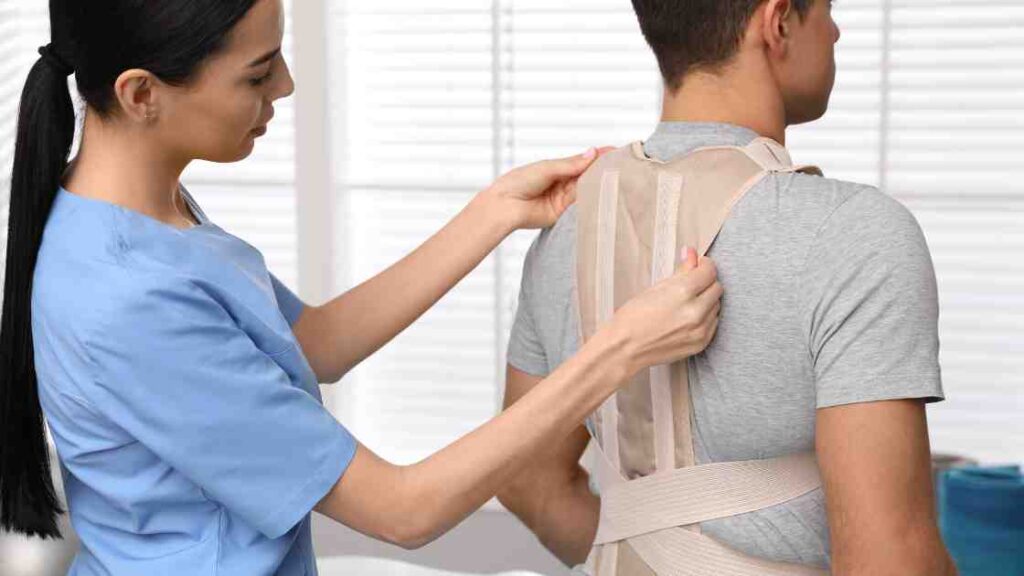
However, posture correctors do not actually improve your posture
While it may seem like a good idea to use a posture corrector to improve your appearance, the truth is that there are no proven advantages. If you're wearing one incorrectly and experiencing pain in your back or neck, you may actually be doing more harm than good.
Posture correctors come in a variety of designs and styles. Some are designed for children; others are designed for men or women. Some are made from elastic materials that allow them to stretch as much as possible while still holding their shape; others are made from stiffer materials with less give to maintain their form better over time. But what they all have in common is that when worn correctly (and we’ll get into just how “correctly” means “incorrectly” later), they place pressure on certain areas of your body that can cause injury or discomfort over time if used frequently enough. And even if they are used, you need proper guidance from an experienced professional. They know how best these devices work on different bodies, depending upon their size, shape, age, and so on.
If you think use of a corset-like device will fix your posture and help you avoid back pain, think again
If you've ever tried to improve your posture with a device like an incorrectly-named posture corrector, you may have been sorely disappointed. Whether it's called a corset or not, these devices cannot fix your slouched shoulders or rounded back by themselves.
In fact, the only thing that can make any difference in your posture is if you work on it every day with specific exercises designed to strengthen and lengthen muscles throughout the entire body. If you're interested in improving your posture without wearing uncomfortable contraptions all day long, here are some tips:
- Try yoga classes where they focus on strengthening the core and stretching out tight muscles so they'll be able to do their job better (the core is essential for good posture). The best part is that most yoga classes also include meditation time at the end—so not only will you get stronger physically but mentally as well!
- Do some Pilates exercises if working out alone isn't doing anything for you. Pilates emphasises core strength and lengthening muscles rather than building bulkier muscle groups. This means less strain on joints which can lead to injury down the road when things start getting older/worse as you age.
Conclusion
In conclusion, it is not recommended that you purchase a posture corrector. If you want to improve your posture, there are other methods that are more effective and reliable. For example, using an anti-gravity machine such as the Inversion Table or hanging upside down from an overhead bar with your feet stationary on the ground will help strengthen your muscles and improve your balance. It's important to have good balance because it helps prevent injuries from happening in everyday activities like walking around town or playing sports outdoors!

FREQUENTLY ASKED QUESTIONS
Is there any alternative to a posture corrector or brace?
While there are a number of products on the market that claim to improve your posture, most of them don’t offer the same level of support as a posture corrector. Foam rollers and yoga mats can help you stretch and strengthen the muscles in your back and shoulders, but they won’t do much to help with your posture if you’re already hunched over from years of bad habits.
The best way to improve your posture is to focus on strengthening the muscles in your upper back and spine. This will help you sit and stand taller, and it will also reduce the strain on your lower back and shoulders. If you have trouble keeping good posture throughout the day, there are a number of stretches you need to do on a consistent basis.
Why does good posture matter?
Good posture matters for many reasons. Poor posture can lead to pain in the lower back and spine, and can even contribute to headaches. Wearing a posture corrector or brace can temporarily help with these issues by providing support for the key areas of the upper back and shoulders. We only recommend for those who are injured or have no way to fixing their posture with stretches in the beginning stage. But for permanent results, sitting up straight, using proper ergonomics, and doing the right kind of stretches will be the only ways to keep your spine in its optimal alignment and provide the most support possible.
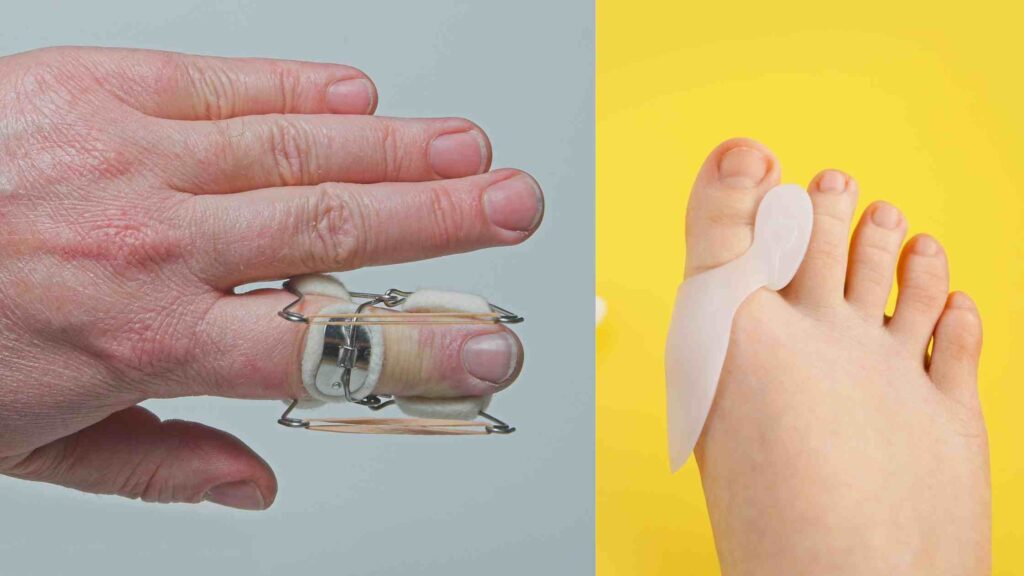
What is a posture brace? Is it the same thing as a posture corrector or something else?
A posture brace is a device that helps to improve your posture by holding your shoulders and spine in alignment. It is different from a posture corrector in that it does not have straps that go around your back or under your arms. The braces are often made of neoprene or other breathable materials and can be worn during activities such as working at a computer or driving.
Can posture correctors improve my height?
Wearing a posture corrector can help you to stand taller and sit up straighter, which can lead to better posture habits overall. However, it has to be done only on a physiotherapist's advice. And none of the braces or posture correctors should be worn for extended periods.
Best posture correctors for the home and office
There are a number of posture correctors on the market, but not all are created equal. The best posture correctors are adjustable, lightweight, and comfortable to wear. They provide support for the back and shoulders, and help to align the spine and correct posture. This can help to relieve back pain, shoulder pain, and upper back pain. The best posture correctors on the market are made of foam or lightweight materials, and are easy to adjust. They can be worn for extended periods of time, and are comfortable to wear. When choosing a posture corrector, be sure to select one that is the right size and weight for you. At Posture Clinic, we only recommend them for injured or post surgical cases. For everyone else, the best way to fix bad posture is exercise.
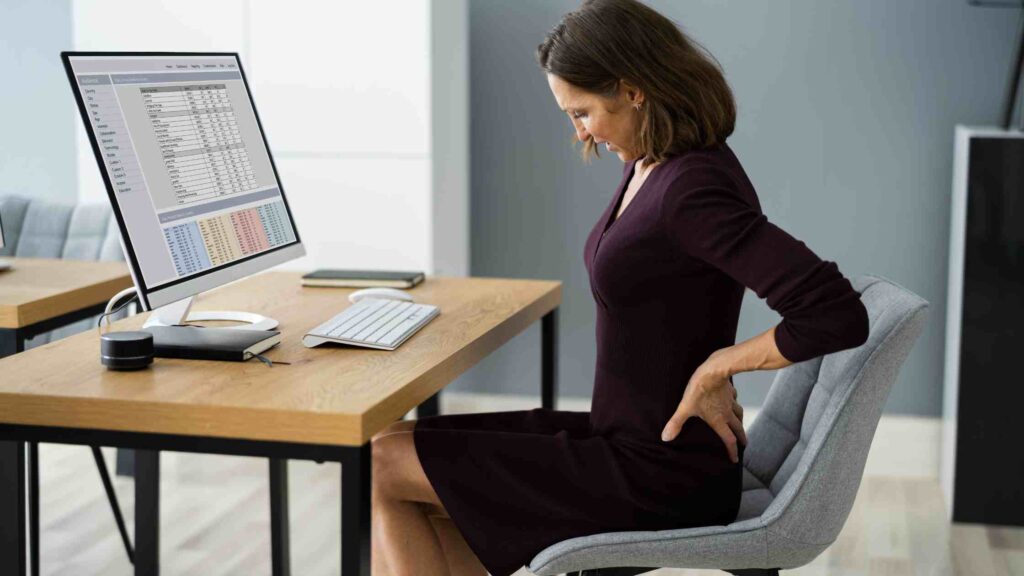
Back Braces
A back brace is a device that is worn to support the back and relieve pain. There are many different types of back braces available, and they are made from different materials. The most common type of back brace is made from metal and plastic. Back braces are often used to treat back pain. They can be used to support the spine and relieve pressure on the spinal cord. Back braces are also sometimes used to prevent further injury to the spine. Back braces are not recommended for everyone. Some people may find that their back pain improves without a brace. Others may find that a back brace makes their pain worse. It is important to talk to your doctor about whether or not a back brace is right for you.
Best posture correctors for seniors
As we age, our spine begins to atrophy and our muscles weaken. This can lead to a number of problems, including back pain, poor circulation, and difficulty breathing. There are a number of different posture correctors on the market, but not all are created equal. To find the best posture corrector for seniors, look for one that is adjustable, lightweight, and comfortable to wear. You may also want to choose a model with built-in vibration technology to help relieve back pain and improve circulation. However, it's best to get the opinion of a physiotherapist on the best way to counter your body pain. Most times, you don't need a posture corrector at all. Just regular exercises should do.
The importance of good posture
Good posture is important for several reasons. Poor posture can lead to pain in the shoulders, neck and spine. It can also cause headaches.
More ways to improve posture
A posture corrector can be worn to help with alignment, and exercises recommended by a doctor or physical therapist can help strengthen the muscles that support the spine. Improving posture during daily activities, such as when sitting or standing, can also help reduce pain and improve spinal alignment. However, a posture corrector is only a temporary measure; only exercises can give you long-term results.
Which posture corrector is the best in India?
There are many posture correctors available in the market, but it is difficult to say which one is the best. It depends on the person's needs and preferences. Some people may prefer a posture corrector that is more comfortable to wear, while others may prefer one that is more affordable. There are also posture correctors that come with different features, such as adjustable straps or padding. At Posture Clinic, we only recommend braces and posture correctors for those who are injured, infirm, or battling post surgical pain. For everyone else, it's exercise, exercise, exercise.
What doctor should I see for posture correction?
There are a few different types of doctors that can help with posture correction. A physiotherapist is the best option for many people, as they focus on the spine and musculoskeletal system. They can help to realign the spine and reduce pain in the muscles and joints. An orthopedist is another type of doctor that can help with posture correction. They focus on bones, joints, and muscles. They can provide exercises and stretches to help improve posture, as well as splints or other devices to support the body.
Is a posture corrector a good idea?
While posture correctors can be helpful in improving your posture, it is important to consult with a healthcare professional before using one. This is because some posture correctors can actually do more harm than good if they are not used correctly.
How can I correct my posture?
Your posture is the position in which you hold your body upright against gravity. Poor posture can lead to muscle strain, pain and fatigue. To improve your posture, start by standing up straight. Pull your shoulders back and down, and tuck your chin in slightly. Then, engage your core muscles by contracting your abdominal muscles and slightly tilting your pelvis upward. Finally, make sure you are balanced by placing your feet hip-width apart.
How much does it take to fix your posture?
How much does it take to fix your posture? It really depends on the person and how severe their posture issue is. For some, they may just need to be more aware of their posture throughout the day and make a conscious effort to stand up straight. Others may need to do some specific exercises or stretches to help improve their posture. And for those with more serious issues, they may need to seek out professional help. So, it really varies from person to person.
Can you correct years of bad posture?
Yes, you can correct years of bad posture. It may take some time and effort, but it is possible. There are a few things you can do to help improve your posture. First, be aware of your posture and try to stand up straight. Second, strengthen your back and stomach muscles by doing exercises like sit-ups and push-ups. Third, try to avoid activities that put strain on your back, such as lifting heavy objects or sitting in one position for too long. With a little bit of effort, you can improve your posture and reduce the risk of developing back problems in the future. A physiotherapist is the best person to guide you on this journey to a pain-free life.
Is correcting posture painful?
No, correcting posture is not painful. It may be uncomfortable at first, but it should not be painful. If you experience pain when correcting your posture, it is important to consult a doctor or physical therapist to find the cause of the pain. There are many possible causes of pain with posture, so it is important to get a professional opinion. Remember, when you are in pain, you should avoid any kind of exercises. Just visit a physiotherapist for the best guidance at this crucial juncture.
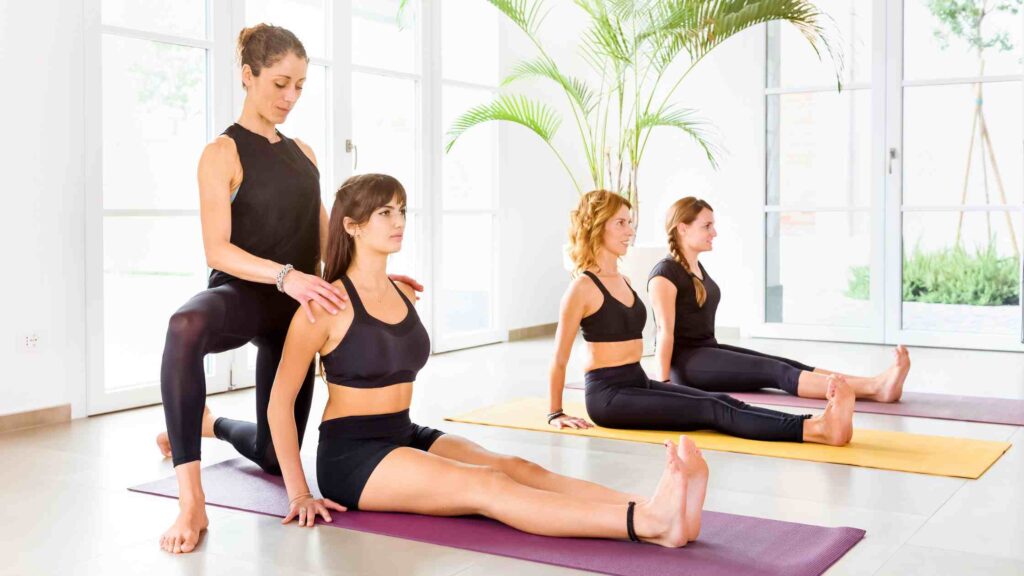
Can doctors fix posture?
Yes, doctors can fix posture. There are a few ways to do this, but the most common is to prescribe a physical therapy regimen. This will help to strengthen the muscles that support the spine and correct the alignment of the spine. In some cases, surgery may be necessary to correct the posture.
Do posture correctors actually work?
There are a lot of people out there who swear by posture correctors, and there are just as many people who think they're nothing more than a gimmick. So, do posture correctors actually work? There is some scientific evidence that suggests posture correctors can be effective in improving your posture. One study found that participants who wore a posture corrector for four weeks had significantly better posture than those who didn't wear one.
However, it's important to keep in mind that posture correctors are not a cure-all for bad posture. They can help you improve your posture and become more aware of your body positioning, but they won't magically fix everything. If you're considering wearing a posture corrector, talk to your doctor or physical therapist first to see if it's right for you.
Is it bad to wear a posture corrector all day?
There isn't a definitive answer to this question as it depends on the individual. Some people may find that wearing a posture corrector all day is beneficial for their posture and helps to alleviate pain, while others may find it uncomfortable and restrictive. Ultimately, it is up to the person to decide whether or not they want to wear a posture corrector all day. If you are considering doing so, it is important to consult with a doctor or physical therapist to ensure that it is the right decision for you.
Should I go to the doctor for bad posture?
If you're experiencing pain in your back or neck, it's best to see an orthopaedist or physiotherapist. They can determine if your posture is the cause and offer solutions to improve it. In some cases, bad posture is caused by an underlying medical condition that will need to be treated. Left untreated, poor posture can lead to long-term problems such as joint pain, muscle tension, and headaches.
Who treats poor posture?
Chiropractors, osteopaths and physiotherapists all assess and manage posture. The approach to managing poor posture will depend on the health professional you see, but may involve manual therapies, exercises and education on how to improve your posture.
How to gain height with posture correction
There are a number of things you can do to improve your posture and gain height. First, be aware of your posture and try to stand up straight. Second, exercise regularly to strengthen the muscles that support your spine. Third, wear shoes that support your feet and help you maintain good alignment. Fourth, see a physiotherapist or other healthcare provider for regular adjustments. Finally, use props such as a standing desk or yoga block to help you maintain good posture throughout the day.
How long does posture correction take?
It really depends on the person. For some, it may only take a few weeks to see significant improvements. For others, it may take several months. And for some people, it may take even longer. The key is to be consistent with your posture correction exercises and stretches.
What happens if I do not correct my posture?
If you do not correct your posture, you may experience pain in your back, neck, and shoulders. You may also have difficulty breathing, and your overall health may suffer. Poor posture can lead to a number of health problems, so it is important to correct it as soon as possible. Remember, there are 150 musculoskeletal problems caused by poor posture.

